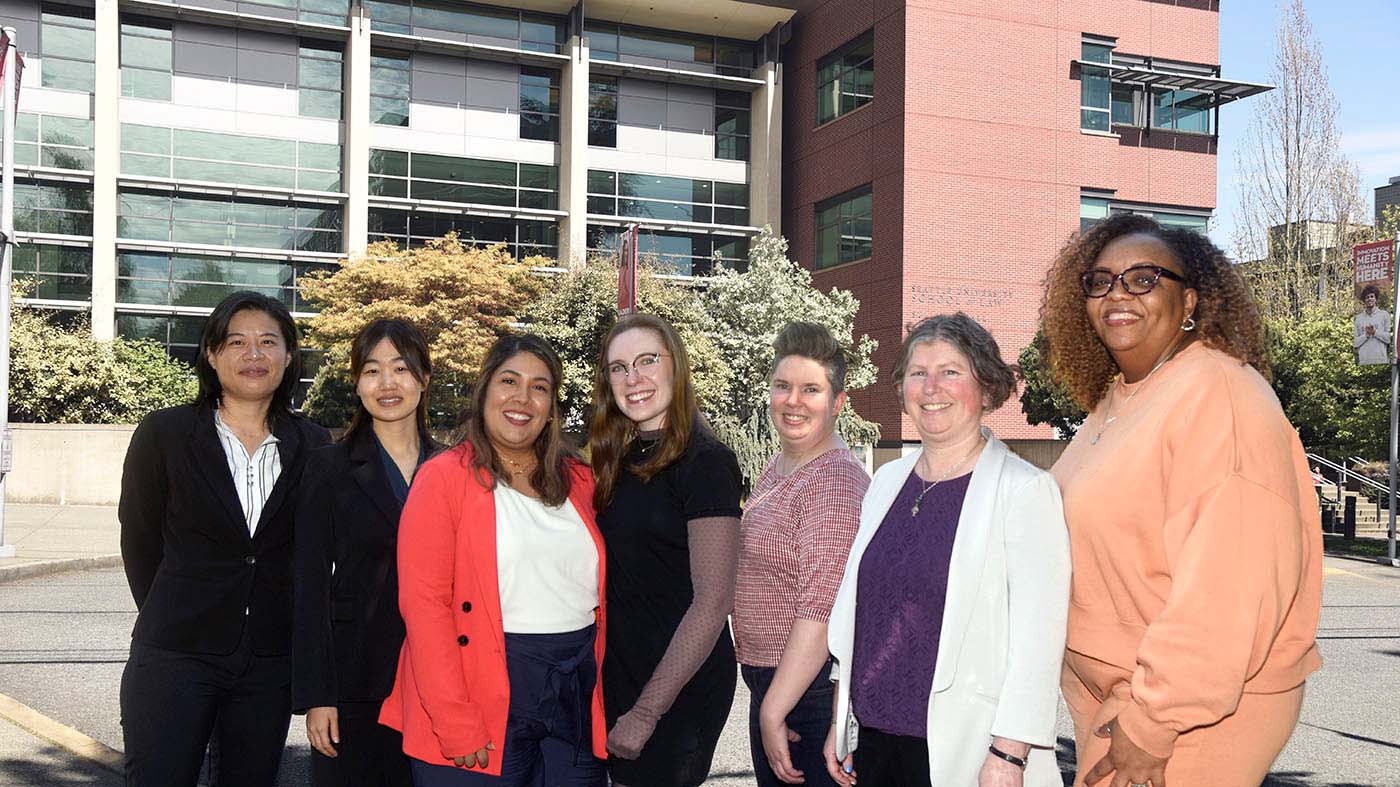Among the more than 200 graduates recognized at Seattle University School of Law’s Spring Commencement Ceremony include the first-ever cohort of students to earn their law degree through the law school’s innovative hybrid-online Flex JD program. Launched three years ago, the program is an effort to make legal education accessible to more aspiring lawyers.
The seven graduates – Amber Bradley, Viveca Burnette, Janet Buttenwieser, Navarra Carr, Jakyung Jang, Sonia Lei, and Samantha Recalde – represent a range of backgrounds and life experiences and, prior to law school, have each worked in a diverse array of fields, including nursing, nonprofit management, municipal elected office, public librarianship, technology, and research.
“I offer my most sincere congratulations to these students, who have worked so hard to reach this point while juggling multiple responsibilities,” said Dean Anthony E. Varona. “This is also a reason for our law school to celebrate, as their success is a strong indication that our Flex JD program is accomplishing what we intended, to open up legal education and the legal profession to more students – many of them first-generation and BIPOC – for whom traditional law school programs are not an option.”
The flexible format of the Flex JD program enables students to complete most coursework online, with just a few in-person classes held on campus each year. For each graduate, the structure of the program created the opportunity to attend law school when it was otherwise not possible, due to a need to continue working, attend to family commitments, raise children, or a necessity to remain in their current homes that may be located far from law schools.
For some, several of these factors converge to make attending law school that much more difficult.
Students normally complete the program in 3.5 years, but these graduates were able to take extra courses that allowed them to finish early. The rest of their cohort who entered the program at the same time will graduate on schedule in December of this year.
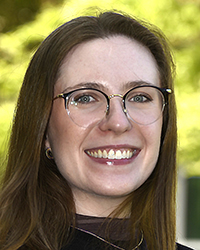
Amber Bradley held a position as a data analyst at an insurance company. After gaining insight into how insurance companies leverage the law, she decided to become a lawyer.
With a mortgage and a job, she “count not afford to drop everything to go to school full time. I chose Seattle U specifically because I lived in Ohio and was interested in practicing law in a different political climate,” Bradley said.
Additionally, she feels “really special to be a part of the inaugural Flex JD class. I felt like our cohort was a great group.” Bradley’s goal is to use her Seattle U Law degree to become an advocate for survivors of domestic violence.
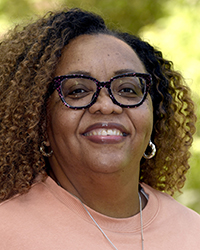
Viveca Burnette was employed as a manager of an international fellowship program at a research ethics board when she enrolled in the program. “I have wanted to be a lawyer since I was a child… but circumstances did not allow,” she said.
Earning her law degree will “equip me with the tool kit I need to augment the skills I already had and engage in the kind of advocacy I always wanted to do,” which includes ensuring Black and Indigenous people are included in the research space.
Burnette is a working mother who also attended to a family member with a terminal illness. “What the Flex JD program allowed me was the platform to do something that I’ve always wanted with a delivery structure that didn’t require me to forego…my other responsibilities,” said Burnette, who will clerk for Justice G. Helen Whitener of the Washington Supreme Court after graduation.
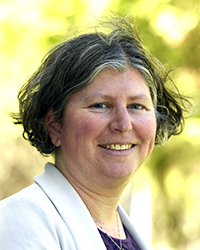
Janet Buttenwieser was a librarian and author prior to enrolling in law school. “I decided to earn a law degree because I wanted to be able to help marginalized populations I had worked with as a librarian in a more profound way,” she said.
She chose Flex JD because of Seattle University’s social justice mission and the program’s structure. “As a parent with two school-aged children, I could not have attended law school without the Flex JD program,” Buttenwieser added.
She has secured a position with the Pierce County Department of Assigned Counsel as a misdemeanor attorney after graduation.
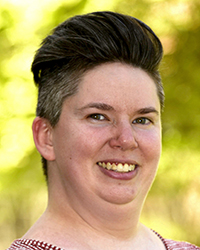
Navarra Carr held positions in nonprofit finance and administration prior to enrolling at Seattle U Law, most recently as office manager for a land trust. Since 2019, she has served on the Port Angeles (Wash.) City Council and was even reelected to a second term last fall while still in law school.
Carr pursued a law degree because “I saw how the legal system can either increase equity or stymie change. And serving on the city council helped me realize that I want to continue to work to make my community a better place, particularly through policy development.”
As a resident of Port Angeles with many responsibilities, Carr could not feasibly relocate to Seattle or elsewhere to attend law school. “The Flex JD program has allowed me to continue to serve my community and have the flexibility to attend classes while working on behalf of the people of Port Angeles,” said Carr, who will continue in her current roles as the city’s deputy mayor and councilmember.
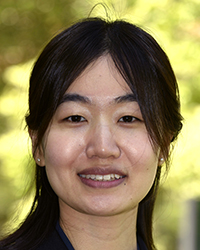
Jakyung Jang was previously enrolled in a social work doctoral program but decided it wasn’t the right fit. A career in law seemed to be a good choice after learning more from a friend who is an attorney.
As a resident of Michigan, Jang chose the Flex JD program because it has allowed her to pursue a legal education from any location. She chose Seattle U Law because of its commitment to social justice, which aligns with her initial interest in social work.
After graduation, Jang will work as an IP litigator at Fenwick & West’s Silicon Valley office. “I’ll be working on patent litigation cases for technology and life sciences clients. The Flex JD program opened doors to do internships in cities like Seattle and Mountain View (Calif.),” she said, adding that both are possible places where she could relocate in the future.
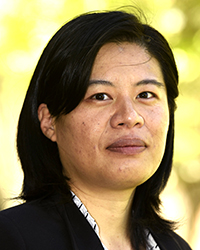
Sonia Lei previously co-founded an educational technology startup and worked in UX design. After their startup was unable to continue, they decided to transition to a legal career “to investigate the larger systems and infrastructure that maintain this country’s status quo of inequality and artificial scarcity,” Lei said.
Because the pandemic was taking place when they were searching for a JD program, Lei was drawn to Flex JD, since much of the coursework is completed online. The flexible nature of the program allowed them to spend much of a summer abroad with their family while continuing to take classes.
Although they are still deciding on a post-graduation career path, Lei is “leaning towards a focus on researching and advocating for environmental justice, with an international lens, while centering the U.S.’s role in advancing and inhibiting environmental progress.
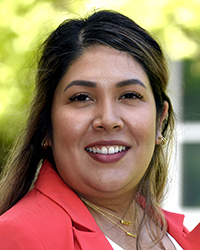
Samantha Recalde was a clinical nurse manager of a labor and delivery unit at a local hospital before coming to Seattle U Law. “Being in middle management during the pandemic really highlighted for me how decisions were made. I decided to attend law school because I want to make changes in the way that womxn seek and receive healthcare and other services,” she said.
The program allowed her to maintain full-time employment so she could support herself, and she was also able to participate in part-time and remote experiential learning opportunities to enhance her education.
After graduation, she wants to “continue to use my previous nursing knowledge and combine that with my legal education to [advance] womxn’s rights, reproductive justice, and gender equity,” she Recalde said.

